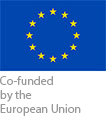Travel Cancellations due to COVID-19: The European Commission considers the voluntary travel voucher an attractive alternative to a reimbursement in money
Last updated on 18/05/2020.
Right to reimbursement
As a result of the COVID-19 pandemic, the travel sector has been forced to cancel all package holidays and transport services. According to the European rules on passenger rights (for travel by airplane, train, coach or boat) and the European rules on package holidays, travellers have a right to a full reimbursement of the money they paid for their ticket or holiday.
Most air carriers and holiday organizers have started to offer vouchers to the affected travellers as an alternative to money reimbursements. Some companies have received support by their government in the form of newly adopted rules for voucher systems. This was the case in Belgium and France, among other countries.
Because these rules ran afoul of European legislation, on 13 May 2020 the European Commission issued an official recommendation for vouchers offered in the context of the COVID-19 pandemic as an alternative to a money reimbursement for cancelled package holidays and transport services.
The European Commission confirms that travellers have the right to choose between:
- a reimbursement in money or
- a voucher
for all cancelled transport tickets or package holidays.
An attractive travel voucher: the conditions
Because companies in the travel sector are currently under severe financial pressure, the European Commission wants to make sure that the voucher is an adequate and attractive alternative for a money reimbursement. The European Commission has imposed certain minimum conditions that a voucher must fulfil:
- The voucher must be protected against the insolvency of its issuer.
- The minimum validity period of a voucher should be 12 months. If the voucher is not used within this period, or is only partially used, then the remaining value should be reimbursed within 14 days after the end of its validity period.
- Passengers should be offered sufficient flexibility:
- Passengers and travellers should be able to use vouchers for payments in respect of all new bookings made before their expiry date even if the payment or the service takes place after that date.
- The traveller should be able to use the voucher to pay for all transport services or package holidays the carrier or organizer offers.
- Passengers should be able to travel on the same route and under the same service conditions as detailed in the original booking.
- Organizers should ensure that vouchers allow travellers to book a package travel contract with the same type of services or of equivalent quality as the terminated package.
- Vouchers for transport services should be transferable to other passengers without any additional cost. Vouchers for package travel should also be transferable to another traveller without any additional cost, if the provider of the services included in the package agree to the transfer without any additional cost.
- Vouchers should indicate their validity period and specify all the rights attached to them. They should be issued on a durable medium, such as email or paper.
In addition to these minimum requirements, the European Commission also issued a couple of recommendations to make the voucher more attractive:
- Vouchers can be issued with a higher value than the amount originally paid for the package holiday or the transport service, for instance by adding an additional lump sum, or by adding complementary service elements.
- Vouchers can be made reimbursable before their expiry date.
- Companies can allow the vouchers to be used to pay for package holidays or transport services from other companies that are part of the same group.
What about the Belgian voucher for package holidays?
To protect the Belgian travel sector, the Belgian government adopted special rules for package holidays on 19/03/2020 and on 03/04/2020. A travel agent or organizer that is based in Belgium, or directs its activities at the Belgian market, can offer a voucher for package holidays annulled because of the COVID-19 pandemic. If the voucher meets the requirements set out in this legislation, then the traveller cannot refuse the voucher.
The obligation to accept the voucher imposed by the Belgian legislation is a violation of the European rules. The current Belgian rules will be in effect until (and including) 19 June 2020. It is currently unclear if the Belgian government will adapt these rules, or if they will be forced to adapt them by the EU.
What does ECC Belgium advise?
The European Centre for the Consumer: Belgium advises consumers to accept vouchers that meet the Belgian or the European requirements. Everyone loses if travel companies go insolvent, including their employees and the consumers.
Currently we are awaiting action from several Member States and stakeholder companies. Will the airline companies adapt their vouchers to the European recommendations? How will vouchers be protected against the potential insolvency of the issuing airline? For the time being, we do not know the answer to these questions.


